Career as a marine biologist necessitates adherence to specific requirements and rigorous protocols. Acquiring a degree in marine biology is pivotal, as it provides comprehensive knowledge about marine fauna and flora.
The pursuit of such an education demands unwavering commitment and dedication, not only to fulfill requisite qualifications but also to emerge as a professional and devoted marine biologist.
The journey to becoming a respected marine biologist is lengthy and challenging. To specialize in marine biology, one must opt for subjects like mathematics, physics, chemistry, and biology during their undergraduate years.
Attaining a degree in marine biology stands out as the most secure route to realizing one’s career aspirations in this field.
Becoming a marine biologist involves a combination of education, field experience, and a passion for marine life. Here is a step-by-step guide on how to become a marine biologist
Marine Biologist Education & Degree
Students that pursue a biology program will study subjects such as cell biology, biochemistry, ecology, evolution, etc. They will be able to choose elective courses that can help them learn about subjects related to their majors, like marine zoology or marine ecology.
Biology programs also rely heavily on laboratory practicals. This will give the students experience working with lab tools, conducting correctly in a lab environment, and following research protocols.
Graduates with bachelor’s degrees in marine biology can find jobs, but career advancements require higher education.
Students will also fail to keep up with their more educated peers unless they put in the extra effort. Pursuing a master’s degree is a wise choice for students to gain confidence in the subjects’ proficiency.

1. Educational Requirements:
a. High School Education: – Focus on biology, chemistry, physics, and mathematics during high school. – Participate in extracurricular activities related to marine biology, such as science clubs or volunteering at aquariums or marine conservation organizations.
b. Bachelor’s Degree: – Obtain a bachelor’s degree in marine biology, biology, zoology, or a related field. Some universities may offer specific marine biology programs. – Take relevant courses, including marine ecology, marine biology, oceanography, and marine conservation.
2. Gain Experience:
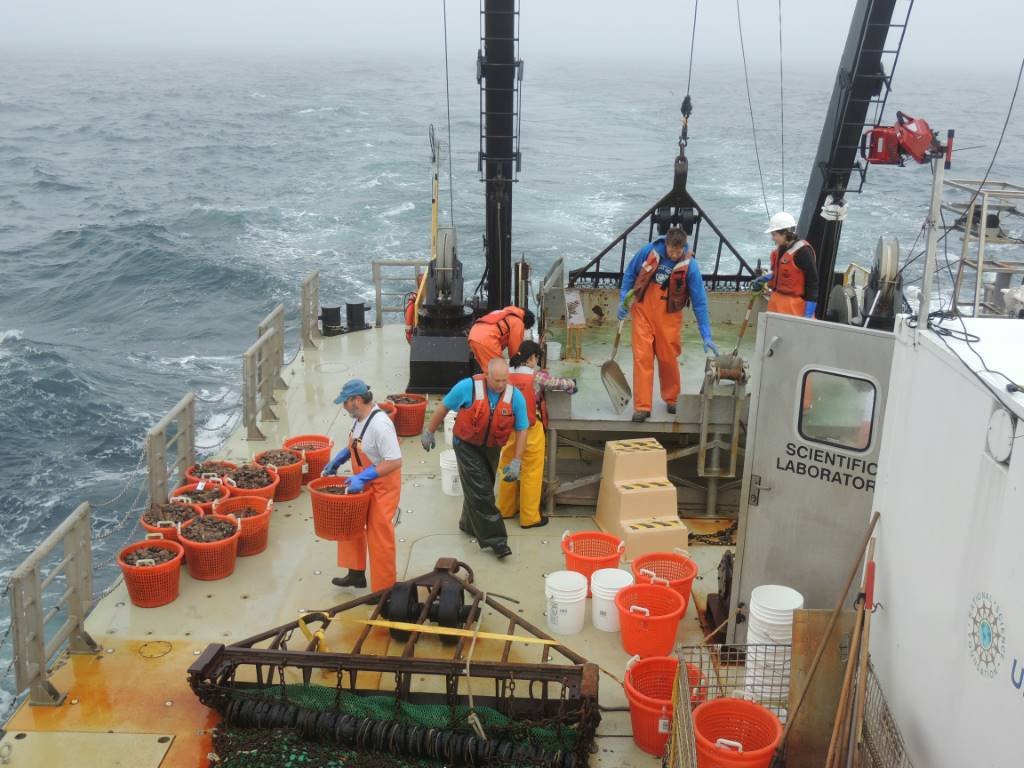
a. Internships and Volunteering: – Seek out internships or volunteer opportunities at marine research institutions, aquariums, or environmental organizations. – Gain hands-on experience working with marine organisms and learning about research techniques.
b. Fieldwork: – Participate in fieldwork to gain practical experience in marine environments. This could involve studying marine ecosystems, collecting data, and conducting experiments.
3. Advanced Degrees (Optional):
- While a bachelor’s degree may be sufficient for some entry-level positions, pursuing a master’s or Ph.D. can enhance career opportunities and allow for more specialized research.
4. Networking:
- Attend conferences, workshops, and events related to marine biology to network with professionals in the field.
- Join professional organizations such as the Marine Biological Association or the Society for Conservation Biology.
5. Stay Informed:
- Keep up with current research and developments in marine biology through scientific journals, publications, and online resources.
Responsibilities of a Marine Biologist

Marine biologists have various roles and responsibilities in management and leadership. They have to manage agencies and oversee that the environmental regulations are being followed regarding the ecosystem in question.
They must formulate proposals to receive funds for research and fieldwork, not to mention scientific papers. They also have to do many internships and monitor the natural habitats of endangered species and marine mammals like dolphins and seals.
They must present their findings at conferences in front of stakeholders and policymakers. They are responsible for making people aware of the impact of human activities on marine animal behaviour, issues like climate change and excessive fishing.
Common research topics in marine biology
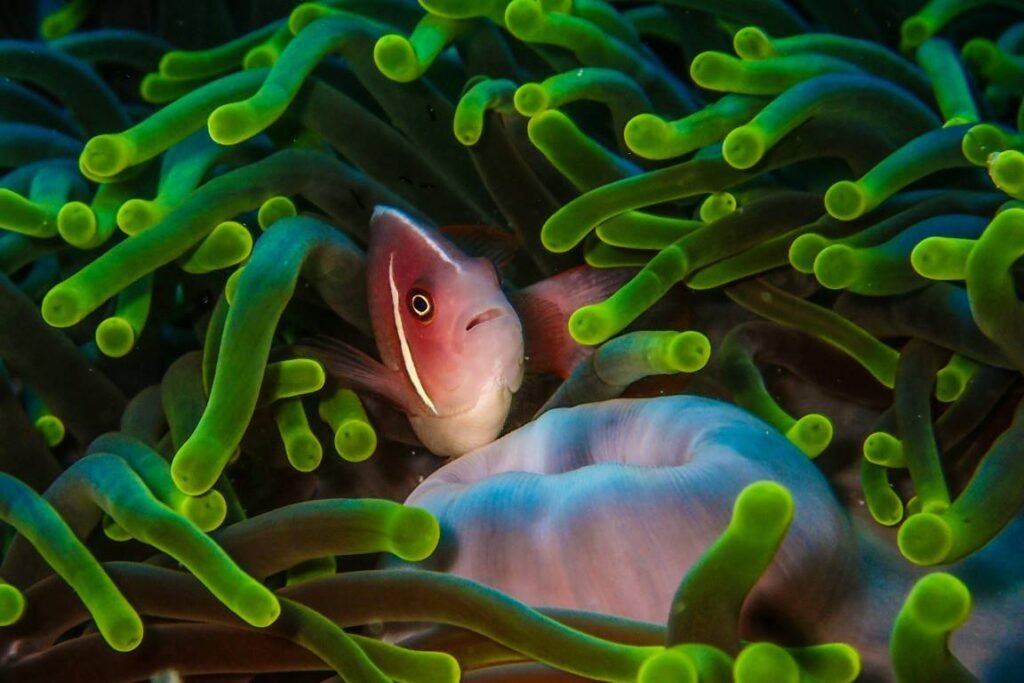
Some common research topics in marine biology include:
- Marine Microbiology: This field focuses on the study of microorganisms in the ocean, including their roles, diversity, and ecological significance.
- Marine Ecology: Research in this area explores the interactions between marine organisms and their environment, including topics such as food webs, biodiversity, and ecosystem dynamics.
- Harmful Algal Blooms and Marine Biotoxins: Studies on the occurrence of harmful algal blooms and their toxins are important for understanding their impacts on marine ecosystems and human health.
- Global Change and its Effects on Marine Organisms: This area of research investigates the impacts of climate change, pollution, and other human activities on marine life, including the responses of marine organisms to these changes.
- Marine Organisms and Their Adaptations: Research topics in this area may include the evolution, behavior, and physiological adaptations of marine organisms to their environment.
Marine Biologist Jobs

Some of the critical organisations that hire marine biologists in the United States are:
- NOAA: National Oceanic & Atmospheric Administration
- Fisheries and Oceans Canada
- California Department of Fish and Wildlife
- Florida Fish & Wildlife Conservation Commission
- NYS Department of Environmental Conservation
- EnviroMatrix Analytical, Inc. (EMA)
- AquaBio Environmental Technologies, Inc. AquaBio Environmental Technologies, Inc.
- Nautilus Environmental
An individual can look up similar organisations in their respective country to know more about opportunities for marine biologists.
Salary and Job Outlook – Marine Biologist Salary
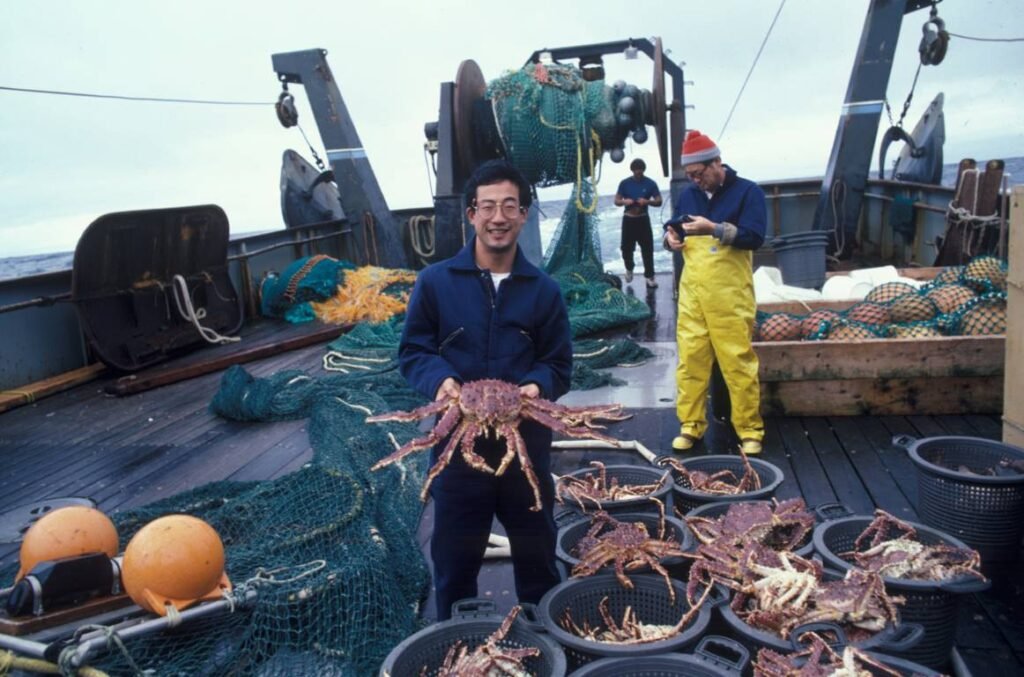
Though there is no detailed data on the salary of marine biologists around the world, according to payscale.com, marine biologists across different levels have a salary range as mentioned below:
1. Entry-level Marine Biologist Salary
Experience plays a huge role in the success of your career as a marine biologist, but your early days will not have a low salary either. An entry-level marine biologist with less than five years experience can expect an average salary of $49,000.
This is a significantly high amount to earn for someone starting their way on the field. You can make more with overtime work, extra projects, etc.
2. Mid-level Marine Biologist Salary
A marine biologist that has been in the field for more than 5 to 10 years can expect an average salary of $51,000. This isn’t all that different from the average entry-level salary, but you can find plenty of top companies that pay higher than this amount.
You will easily find more demanding work if you have the talent and achievements.
3. Experienced Marine Biologist Salary
An experienced marine biologist with 10 to 20 years of work experience can expect an average salary of $60,000. This is also relative to your achievements and the company you work for.
- The salary of a marine biologist can vary depending on factors such as education, experience, and location. On average, marine biologists earn a competitive salary.
- Job opportunities exist in various sectors, including research institutions, government agencies, consulting firms, and non-profit organizations.
Also Read, Merchant Navy Salary of all ranks on ship
Colleges and Universities Offering Marine Biology Programs:
- Some well-known institutions with strong marine biology programs include:
- Stanford University
- Scripps Institution of Oceanography (UC San Diego)
- University of Miami
- University of Hawaii at Manoa
- Woods Hole Oceanographic Institution (affiliated with MIT)
Important Books for Marine Biologists
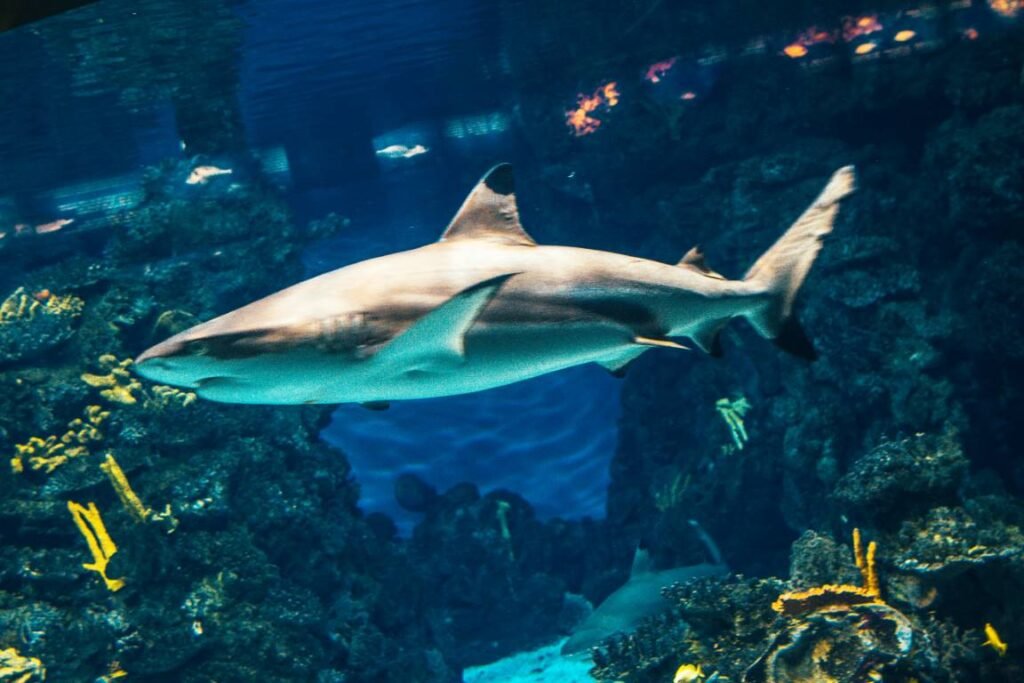
If you are a marine biologist or are planning to become one, then the following books would be beneficial:
- The Unnatural History of the Sea – Prof. Calum Roberts
- Mapping the Deep – Robert Kunzig
- Spirals in Time – Dr Helen Scales
- Vanished Ocean: How Tethys Reshaped the World – Prof. Dorrik Stow
- The Empty Ocean – Richard Ellis
- Voyage of the Turtle: In pursuit of the Earth’s last dinosaur – Prof. Carl Safina
- Reflections on a Summer Sea – Prof. Trevor Norton
- Narwhals: Arctic Whales in a Melting World – Todd McLeish
- Flotsametrics and the floating world – Dr Curtis Ebbesmeyer & Eric Scigliano
- A Life Underwater – Dr Charlie Veron
To become a marine biologist, you typically need a strong background in science, a bachelor’s degree in marine biology or a related field, and relevant work experience. Some technician positions may only require an associate’s degree, but a bachelor’s degree is the most common requirement, with advanced positions potentially requiring a master’s degree.
Recommended degree programs include a B.S. in Marine Biology and Sustainable Aquaculture. Volunteer experience is also valuable for entry-level positions.

Marine biologists can expect an average salary of around $64,650, with those holding a master’s degree earning an average of $56,333 and those with a doctorate earning around $65,927.
There are no specific certification or licensure requirements for marine biologists. Some of the famous colleges providing courses in marine biology include Duke University, ETH Zurich, Boston University, and the University of Maine.
Studying marine biology involves specific requirements and protocols, and pursuing a degree in this field typically takes about four years for a bachelor’s and additional time for a master’s or a Ph.D. program
How is the Life of Marine Biologist
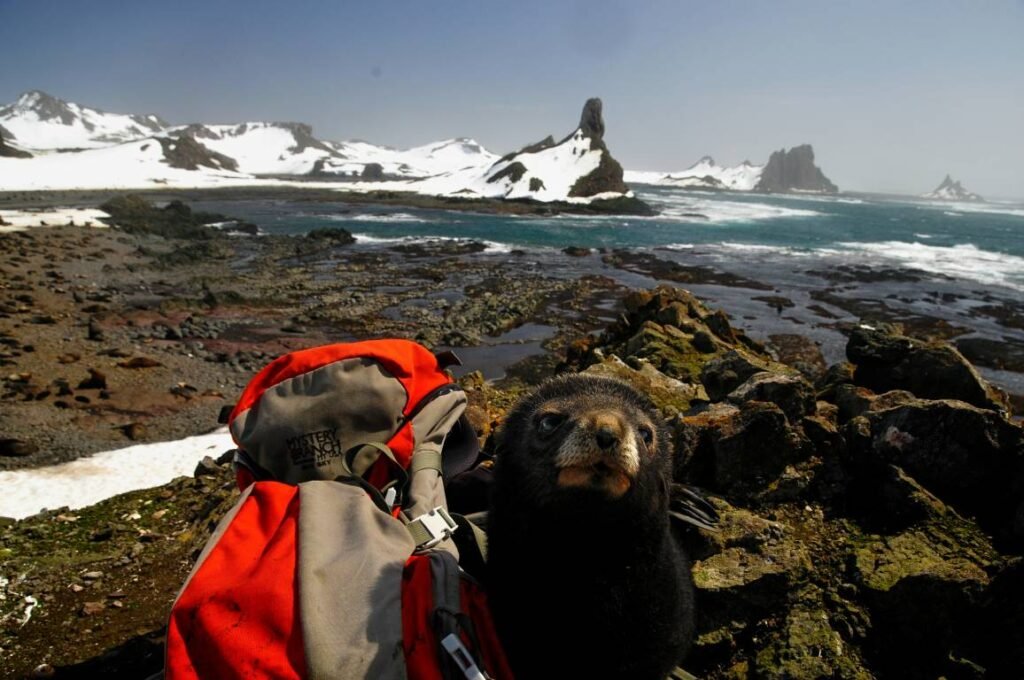
The life of a marine biologist can be diverse and rewarding, involving a range of activities and experiences. A typical day can vary widely, from conducting research in the field to working in a laboratory or office. Some marine biologists spend time diving on beautiful reefs, sampling the ocean from boats and ships, and working up samples in the laboratory.
They may also spend time analyzing data on computers or writing up their findings for publication. Additionally, marine biologists may be involved in activities such as disentangling whales from nets, teaching about marine life, and responding to marine life in distress.
The work can also involve meeting with scientists, government agencies, aquariums, environmental groups, and concerned citizens about marine conservation priorities. While the work can be incredibly rewarding, it often requires a strong educational background, with many marine biologists holding a master’s or a Ph.D. degree.
Overall, a career in marine biology offers a wide range of experiences and the opportunity to contribute to the understanding and conservation of marine life
Conclusion

Becoming a marine biologist requires a solid educational background, hands-on experience, and a commitment to the conservation and understanding of marine ecosystems.
Stay passionate, continually seek opportunities for learning and growth, and build a network within the marine biology community to increase your chances of success in this field.
Frequently Asked Questions
1. What exactly does a marine biologist do?
A marine biologist studies and observes marine life in their natural habitat. They also assess their living conditions, record their physiology and behaviours, and the human impact on their lives and ecosystems.
2. Are marine biologists paid well?
Marine biologists are well-paid in many countries of the west. An entry-level position can get an average total consumption of 250,000 dollars, including bonus, overtime pay, tips etc. Marine biologists make the most in San Francisco, California.
3. What are the disadvantages of being a marine biologist?
The job of a marine biologist pays well. However, it is very demanding and also dangerous. One should be physically fit and know how to deal with marine species. It requires stamina to operate heavy equipment, dive deep waters and examine marine animals.
4. Who is known as the first Marine Biologist?
Aristotle was the first person to record his observations on marine life. Hence, he is called the father of marine biology and the world’s first marine biologist.
Charles Darwin is also considered one of the first marine biologists as he studied coral reefs extensively, which helped to develop his initial ideas about natural selection and evolution.
5. What is the demand to be a marine biologist?
Marine Biologist is not a popular job in most developing countries which do not undertake marine research. However, it is a prominent position in western nations like the UK, the US and Europe.
According to the U.S Bureau of Labour Statistics, the employment of zoologists, marine biologists and wildlife biologists can be expected to increase by 5 per cent between 2020 to 2030.

